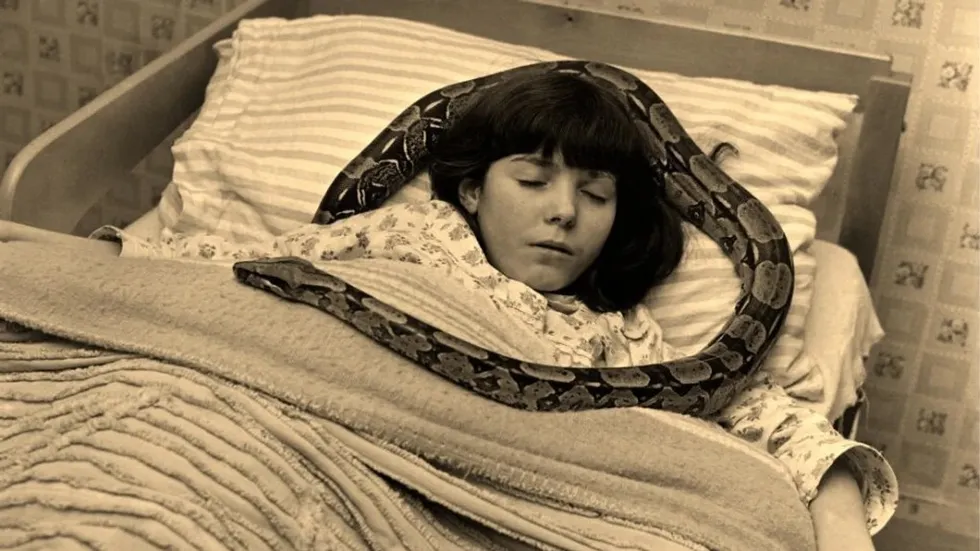
Jack Rowand/Getty Images

We've known how dangerous chemicals like glyphosate are for years; it's high time our laws caught up.
If you've ever been apple picking, you know how homely apples right off the tree can look. A far cry from the beautiful specimens we've come to expect from the supermarket: smooth, unblemished, blood-red.
But this cosmetic perfection comes at a price. It relies on pesticides that poison our soil, our water and our bodies.
Farmers themselves are the first casualties. Studies show they face elevated rates of non-Hodgkin’s lymphoma, multiple myeloma, prostate cancer, gliomas, leukemia, and melanoma.
Pointing this out shouldn't be a radical position, but it is. Must we take to the trees like Julia Butterfly Hill just to demand food that won't sicken us and degrade the environment? It’s unfortunate that we’ve come to a place where commonsense stewardship of nature requires the constitution of an eco-activist.
Part of the problem is denial. The Environmental Protection Agency already has the authority to regulate the sale, distribution, and use of pesticides under the 1947 Federal Insecticide, Fungicide, and Rodenticide Act.
Great, I guess. And yet, we now have over 90,000 registered pesticide products, built from 3,577 unique active ingredients.
We can look at these numbers — and at the sickness in our bodies — and know, intuitively, that it’s all wrong. That no one in authority is actually looking out for us.
It took the allegedly “anti-science” RFK Jr. to ban carcinogenic food dyes. And yet, we’ve known about their harm for decades. Red Dye No. 3 was banned from cosmetics in 1990 — so why did it take 35 more years to consider removing it from our food?
Recent research links food dyes like Red No. 3 and Red No. 40 to DNA damage and to the sharp rise of colorectal cancer in young adults over the past 40 years. One study put it plainly:
Our results show that Red 40 damages DNA both in vitro and in vivo. ... This evidence supports the hypothesis that Red 40 is a dangerous compound.
The parallel with pesticides is obvious. We have similar data proving that perfectly legal pesticides are carcinogenic. But who has the political will to confront the EPA and break the industrial pesticide complex?
As I wrote previously, pesticides in our homes and gardens pose serious risks for us and our unborn children. Now, consider the 280 million pounds of glyphosate sprayed annually on 285 million acres of farmland — an area nearly three times the size of California.
And pesticides don’t simply vanish. They metastasize and bioaccumulate. Every step up the food chain concentrates them further.
The results are devastating:
Farmers themselves are the first casualties. Studies show they face elevated rates of non-Hodgkin’s lymphoma, multiple myeloma, prostate cancer, gliomas, leukemia, and melanoma.
And the damage doesn’t stop at harvest. Pesticides remain on the skin of fruit and vegetables and the surface of grains; tests have found glyphosate in most U.S. wines and beers. According to one study, glyphosate at a level of just one part per trillion can stimulate the growth of breast cancer cells and disrupt the endocrine system.
RELATED: Is your home trying to kill you?

Why is the United States so saturated with poisons that Europe has long banned?
So Europe outlaws neonicotinoids (bee-killing pesticides), paraquat, and chlorpyrifos — while America still sprays them. Paraquat, linked to Parkinson’s disease, remains widely applied in the U.S.
And it’s not just domestic hypocrisy. While driving in France this summer, I passed a pesticide plant that manufactures chemicals banned in Europe — yet sells them abroad. This practice is common, sinister, and completely legal.
The insanity extends beyond agriculture. Glyphosate is sprayed into forests for “management.” In Nova Scotia, officials actually closed parks for fire danger — then announced plans to spray glyphosate across thousands of acres. A move that kills trees, suppresses growth, increases fire risk, and poisons pollinators.
This is not new. In the 1960s, scientists showed that DDT and its byproducts accumulated in birds, thinning eggshells and driving bald eagles and peregrine falcons to the brink of collapse. Decades later, banned chemicals like DDT and PCBs are still found in marine life.
We have always known. And yet the pesticide game continues.
I honestly believe that banning the last 50 years of registered pesticide products would do more good for humanity than any other environmental reform. Plastics are a fast second.
The main takeaway is this: Our 90,000+ registered pesticides are destroying us. The cumulative 3,577 unique active ingredients they use concentrate in every step of the food chain, ending in our bodies.
And here’s the bitter truth: RFK Jr., even as HHS head, has no power over the EPA. If the food supply is poisoned from the ground up, his efforts are for naught.
So we return to the first question: Who will stand up for us?
Jessica Solce